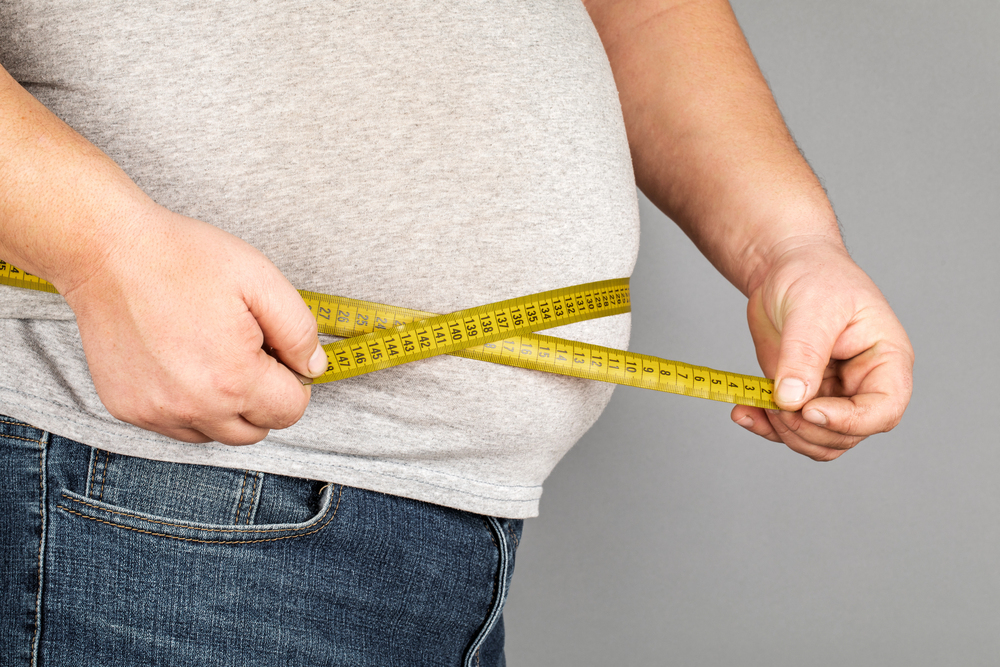The Link Between Obesity and Erectile Dysfunction

Content by

Last Updated
Start a Consultation Today
Science means that ED can be optional.
No fancy packaging. No unwanted subscriptions. Delivered discreetly.
Are you struggling with weight gain and noticing a performance dip in the bedroom? Whether you find it difficult to get or keep an erection, this is a common issue among men across the UK. Experts believe there is a complex link between obesity and erectile dysfunction. While it is a sensitive or triggering topic for some people, it is important to understand this link if you face both issues or want to support a partner who can relate.
Continue reading to learn more about how obesity contributes to erectile dysfunction and if losing weight can help individuals with ED. You will also come across lifestyle guidelines to help get your sex life back on track.
Table of Contents
- Understanding Obesity and Erectile Dysfunction
- How Does Obesity Contribute to Erectile Dysfunction?
- Can Losing Weight Help Erectile Dysfunction?
- Lifestyle Guidelines to Improve Erectile Dysfunction
- Can Obese Men Take Viagra?
Understanding Obesity and Erectile Dysfunction
In today’s world, obesity is an ongoing issue, affecting hundreds of thousands of people across the UK. According to a report in 2021, 43% of men in England are overweight and 25% of men are obese. [1]
Obesity describes a person who has excess body fat with a BMI (body mass index) of over 30. BMI is a useful indicator of whether someone has a healthy weight for their height. Obesity has many causes including genetics, high-calorie diets and lack of physical activity. Certain medications can also cause weight gain. Those living with obesity have an increased risk of serious health conditions such as type 2 diabetes, high blood pressure and heart disease. [2]
Aside from obesity, erectile dysfunction is another common issue men tend to experience at some point in their lives. Also known as impotence, erectile dysfunction (ED) is a type of penile disorder which primarily affects men over the age of 40. While men can occasionally find it difficult to achieve or maintain an erection, it becomes an issue if it happens frequently.
In 2018, a study with 12,490 male participants was carried out in the UK. The study found that 41.5% of participants reported some form of erectile dysfunction while 7.5% reported severe erectile dysfunction. [3]
How Does Obesity Contribute to Erectile Dysfunction?
Experts have identified obesity as a significant risk factor for erectile dysfunction, affecting blood flow, hormone levels and mental health:
Poor Cardiovascular Health
Obesity often leads to poor cardiovascular health. Excess body weight puts additional strain on the heart and blood vessels, making it more difficult for blood to circulate throughout the body including the penis. Adequate blood flow is essential for a firm and lasting erection, meaning poor blood circulation can decrease erectile function.
Type 2 Diabetes
Obesity can also lead to type 2 diabetes which is one of the known causes of erectile dysfunction. Long-term effects of diabetes include damage to the blood vessels and nerves, including those found in the penile area. When these blood vessels and nerves are damaged, it directly affects the ability to have and sustain an erection.
Hormonal Imbalances
Excess fat around the stomach increases the risk for hormonal imbalances, especially testosterone which promotes sexual desire. Lower testosterone levels can decrease sexual desire and affect normal erectile function.
Mental Health Problems
The psychological effects of obesity can lead to mental health problems, such as low self-esteem, stress and depression, which also play a role in erectile dysfunction. Mental health dramatically influences sexual well-being and performance. These psychological effects can make it difficult to be sexually aroused.
Some studies have shown the link between obesity and erectile dysfunction. A 2012 study carried out a urological and internal evaluation among male participants with abdominal obesity. Out of the 167 participants, 122 were found to have some degree of erectile dysfunction. [4]
Can Losing Weight Help Erectile Dysfunction?
For some men living with obesity, losing weight can significantly help with erectile dysfunction. Reducing the amount of excess body fat improves cardiovascular health and increases blood circulation to the penis. It can help manage the long-term effects of diabetes by minimising their severity or delaying their onset, potentially improving erectile function. In addition, losing weight can improve mental health, self-esteem and body image, eliminating the psychological causes of erectile dysfunction.
Lifestyle Guidelines to Improve Erectile Dysfunction
By making daily changes to your lifestyle, you can help to improve and prevent erectile dysfunction. Here are some lifestyle guidelines to follow:
- Maintain a Healthy Diet - Eat a diet rich in fruits, vegetables, whole grains and lean proteins and drink plenty of water. These foods are full of vitamins and minerals to support overall health. Avoid processed foods or foods with a fat or sugar content. This helps to cut down on calories and prevent further excess weight gain.
- Get Regular Exercise - Regular exercise improves cardiovascular health, increases blood flow and boosts mood, which is crucial in preventing erectile dysfunction. Aim for at least 150 minutes of moderate-intensity exercise each week, such as brisk walking, running, swimming or cycling. If you struggle to get regular exercise, a personal trainer can create a tailored workout plan and give support.
- Quit Smoking - Smoking can affect the body’s circulation, increasing the risk of arteriosclerosis (narrowing of the arteries) and restricting blood flow, which contributes to erectile dysfunction. Quitting smoking can be difficult, but it will significantly improve cardiovascular health, lung function and overall physical health.
- Limit Alcohol Intake - Consuming excessive amounts of alcohol affects blood flow, the nervous system and hormonal levels over time, impairing normal erectile function. Limiting the use of alcohol can help keep erectile dysfunction at bay.
Research has shown that making lifestyle changes can help men lose weight and regain normal erectile function. A 2-year study was carried out on 110 obese Italian men with an average age of 43.5 who experienced erectile dysfunction. The men were assigned to complete a weight-loss program which involved consuming 300 fewer calories a day and increased weekly exercise. After 2 years, the men lost an average of 33 pounds and 31% of men regained normal erectile function. [5]
Can Obese Men Take Viagra?
Losing weight may not work for everyone. Alternatively, men can look at oral medications to help with erectile dysfunction. A popular medication that men across the world often take is called Viagra. It is a type of PDE5 inhibitor which works by relaxing the blood vessels and increasing blood flow to the penis, resulting in a firm erection for around 4 hours. Most healthy men can take Viagra, including those living with obesity. It is effective in 60% of users.
Viagra is available in a cost-effective and generic version called Sildenafil or an over-the-counter option called Viagra Connect. Both medications last for 4 hours on average and take around 30 to 60 minutes to work.
For those looking for a quicker onset of action and a longer duration of action, Tadalafil, often referred to as ‘generic Cialis’, is another popular type of PDE5 inhibitor which is used to treat erectile dysfunction. Available options include 20mg and 10mg tablets which last for up to 36 hours or 5mg and 2.5mg tablets which are taken daily and have a continuous effect.
Viagra can be prescribed by your doctor or purchased through an online pharmacy such as Chemist Click. We encourage our customers to take a free online consultation with one of our qualified pharmacists to find the safest erectile dysfunction medication for them. We also offer fast and discreet delivery to your home.
Sources
- House of Commons Library. (2023). Obesity Statistics. Retrieved 18th October 2024, from: https://researchbriefings.files.parliament.uk/documents/SN03336/SN03336.pdf
- NHS. (2022). Obesity. Retrieved 18th October 2024, from: https://www.nhs.uk/conditions/obesity/
- Li JZ, Maguire TA, Zou KH, Lee LJ, Donde SS, Taylor DG. (2022). Prevalence, Comorbidities, and Risk Factors of Erectile Dysfunction: Results from a Prospective Real-World Study in the UK. Retrieved 18th October 2024, from: https://pmc.ncbi.nlm.nih.gov/articles/PMC9159135/
- Fillo J, Breza J, Levčíkova M, Luha J, Vachulova A, Durdík Š, Labaš P. (2012). Occurrence of erectile dysfunction, testosterone deficiency syndrome and metabolic syndrome in patients with abdominal obesity. Retrieved 18th October 2024, from: https://pubmed.ncbi.nlm.nih.gov/22315154/
- Evans MF. (2005). Lose Weight to Lose Erectile Dysfunction. Retrieved 18th October 2024, from: https://pmc.ncbi.nlm.nih.gov/articles/PMC1479584/
Whilst all of our content is written and reviewed by healthcare professionals, it is not intended to be substituted for or used as medical advice. If you have any questions or concerns about your health, please speak to your doctor.
